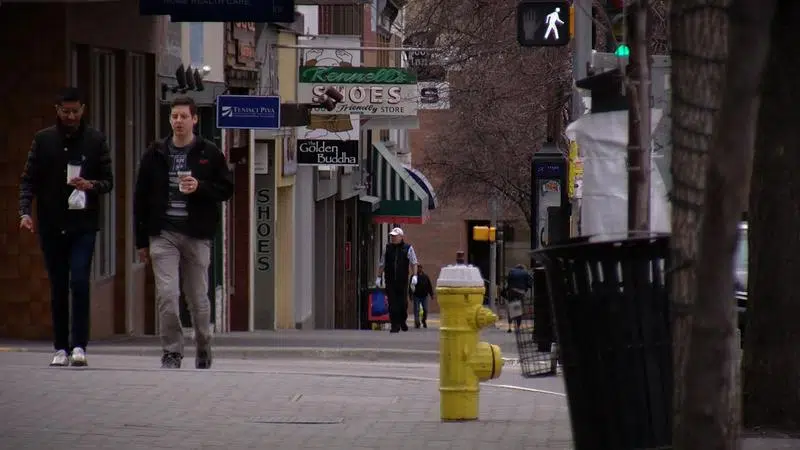
Even with government supports, COVID-19 pandemic a shock to the system for downtown Kamloops businesses
KAMLOOPS — It was almost one month ago to the day that it became apparent to Emily Sedgwick that she wouldn’t be able to launch her new store, Crooked Crown, as planned.
“It was a little bit of a rough week as things started to progress,” Sedgwick says, outside of the Victoria Street shop she had been working to open. “It was pretty upsetting. We had already sunk money into the business. I had quit my job.”
Thanks to the COVID-19 pandemic, Sedgwick, like so many other business owners throughout the city, had to press pause and adjust to what many are calling “the new normal.”


